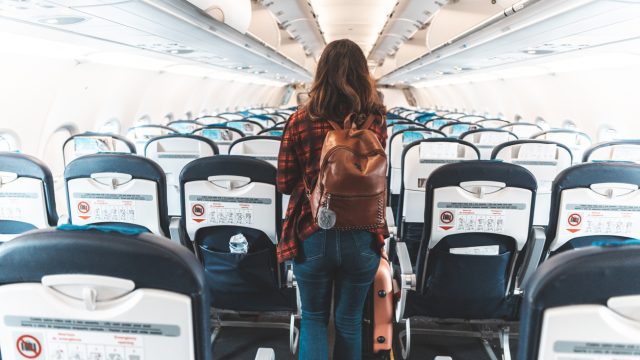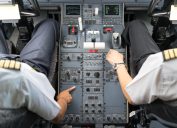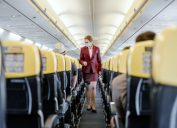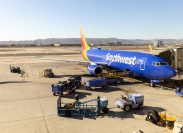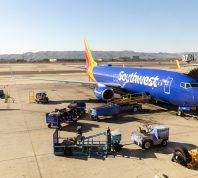Never Do This Before Takeoff, Flight Attendant Warns
The seemingly helpful act could actually be causing your flight to be delayed.
No matter how prepared you are, boarding a flight always involves a bit of jostling and organizing as you find your seat and settle in. But as you're getting your bags in place and preparing for your trip, you may be inadvertently causing a delay. If you want to avoid putting everyone behind schedule, flight attendants warn there's one thing you should never do before takeoff. Read on to see what plane practice you should ditch immediately.
RELATED: Never Drink This on a Plane, Flight Attendant Warns.
Never close the overhead bins on a plane before takeoff, even if they seem like they're full.
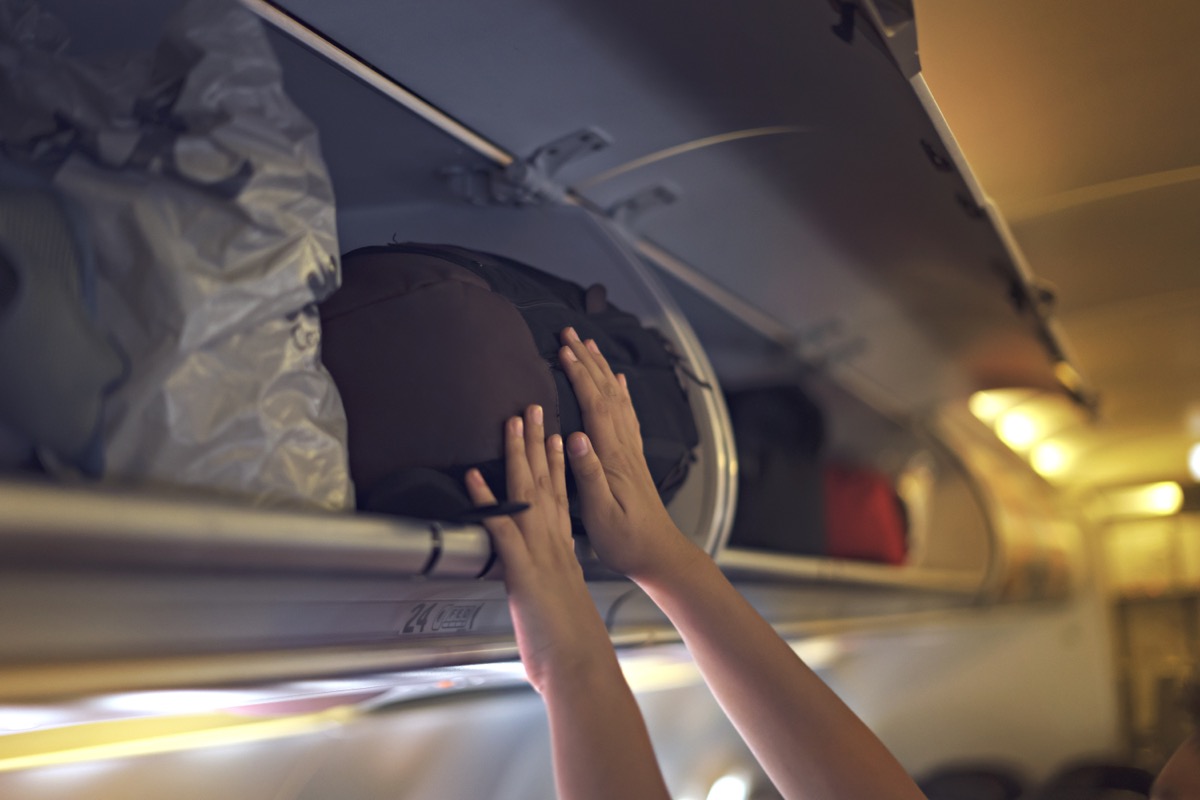
Finding enough space for your carry-on bags can feel like survival of the fittest when you're boarding a flight. But even if you get lucky enough to score the last bit of space in an overhead bin near your seat, you should never close it yourself. While it may seem like a generous act, you could actually be making it hard for other passengers to find a place for their items.
"Travelers coming down the aisle need to know if those bins have any room left for them," Daniel Levine, a travel expert with consultancy firm the Avant-Guide Institute, tells Reader's Digest. "Maybe someone else is just looking for a place to stash a bulky coat. Even in a bin full of bags, there may be room for something small or squishy. I'm constantly walking down the aisle popping open bins to see if there is room for my tiny computer case. Unfortunately, almost every flyer closes the overhead bin when they themselves feel they are full."
You can stow your luggage in a way that ensures there's enough space for everyone in the overhead bins.
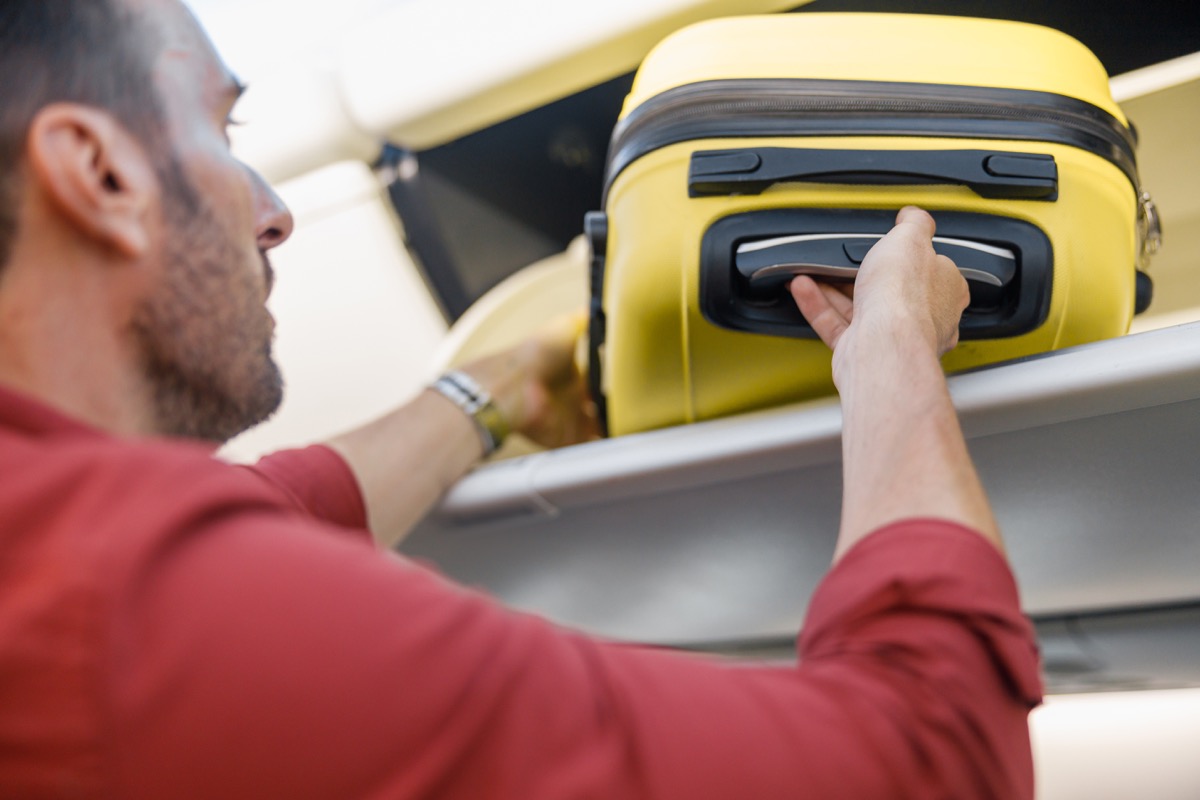
As airlines have continued to tack on baggage fees over time, more passengers have begun to rely on carrying their bags on board. Unfortunately, this has created a new headache for the crew before each takeoff as passengers rush to find a place to stash their bags.
"The vast majority of U.S. passenger planes were designed before 2008, and airlines were too slow to realize they had to redesign the overhead bins," Spud Hilton, host of the Inappropriate Traveler podcast, tells Condé Nast Traveler. "The result? Boarding suddenly took twice as long, delays skyrocketed, and the airlines began padding all the flight times to avoid being late."
If you're looking to cut down on the amount of time between the cabin doors closing and wheels up, you might want to make sure you're packing the overhead bins correctly in the first place. "Wheels first," Heather Poole, a longtime flight attendant and author of the book Cruising ATTitude: Tales of Crashpads, Crew Drama and Crazy Passengers at 35,000 feet, tells Travel + Leisure. "Most passengers know their large carry-on items go in the overhead bin wheels first. Jackets and coats go on top of the bag. Smaller bags go under the seat."
RELATED: For more up-to-date information, sign up for our daily newsletter.
Don't assume your carry-on bag will fit in every plane's overhead bins.
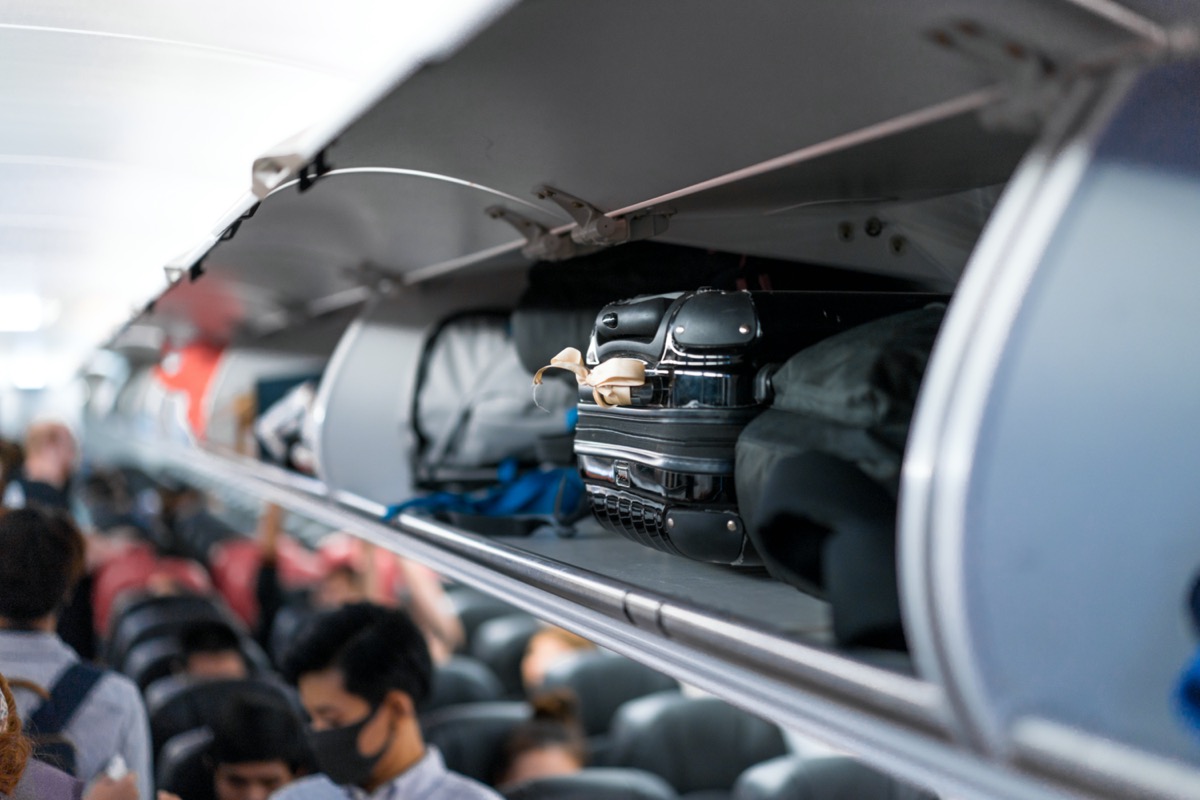
Packing mistakes usually involve forgetting something important like a charger or enough days worth of clean socks. But in some cases, it can also include picking the wrong type of carry-on that may be too big for the kind of plane you'll be flying on. "Every time I work on the Embraer 170 or 175 [regional jets], passengers comment on the smaller bin space and say, 'It fit on the last plane,'" Beth Blair, a longtime flight attendant, writes for the website 365 Atlanta Traveler. "Mainline and international flights usually have much larger equipment than regional aircraft, which means the bins are probably bigger, too."
Fortunately, it's not too late to save time by handing your bags off as you get ready to board. "It's also not always possible to find a space for everyone's bag, so your extra items may need to be checked regardless," Arina Bloom, a flight attendant who worked in the industry for two years, wrote for Business Insider. "If you're worried about paying extra, ask an attendant at the gate. They're usually happy to check it for free if the flight is full."
It's essential to check your luggage if you don't think you can lift your bag into an overhead bin.
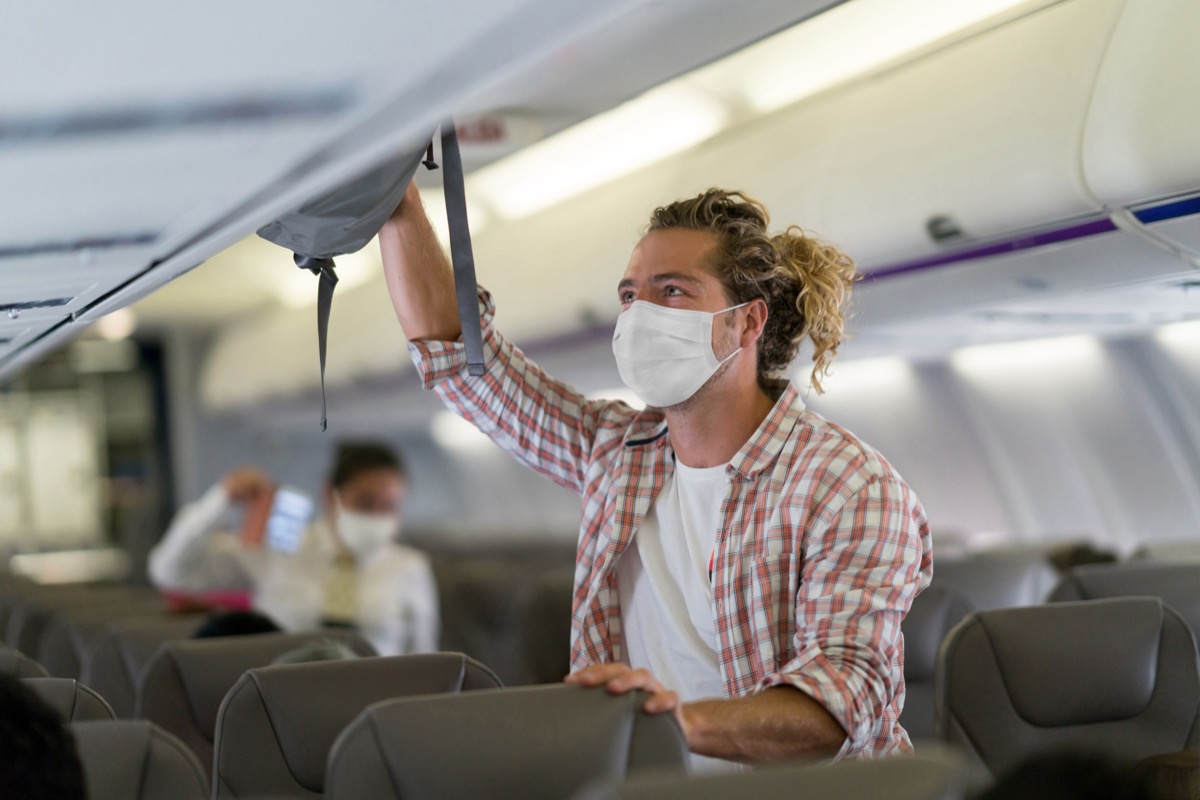
If you've decided you absolutely can't part ways with your luggage, you'll have to make sure you're physically able to lift it into the bin. Unfortunately, if you can't find a friendly fellow passenger to help you at this point, the flight attendants on the plane still can't step up to lend a hand. During a 2019 interview with Inside Edition, flight attendant Jamila Hardwick revealed that you should never ask a flight attendant to store your luggage for you.
"We do not get paid until the boarding door is closed," she explained. "If we get hurt while putting that bag in the overhead bin, we do not get to write it off as an on-job injury."
To prevent flight attendants from having a costly accident, you might want to think twice before bringing a large bag onto an airplane. "The rule is if you can't lift it into the overhead bin yourself, check it," former flight attendant Shawn Kathleen told Yahoo! Travel in 2015. Once your bag is in the overhead bin, the most that a flight attendant can do is push it farther in and help close the door.
RELATED: Never Forget to Do This After Takeoff, Flight Attendant Warns.
